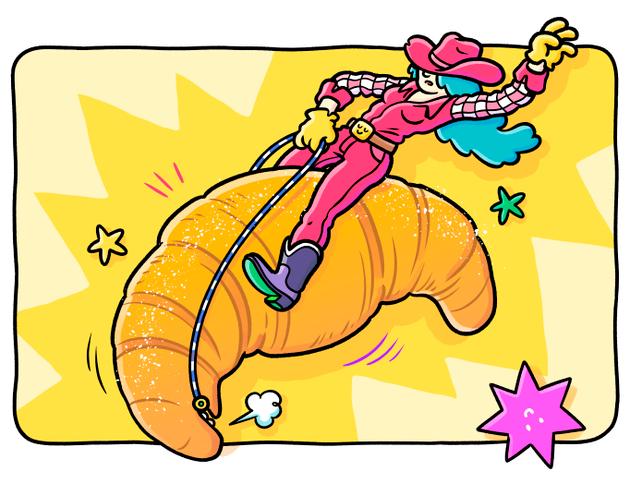

The myth of the American in Paris
Long Read'The US, France and me' (1/5). Pamela Druckerman is a journalist from New York who has lived in Paris for almost 20 years. So many Americans have settled in the French capital, she observes, that they have fractured into different tribes – which don't all fit into the classic 'American-in-Paris' narrative.

At a café in Paris once, I met a novelist from Tirana who was struggling to choose the topic of her next book.
"Just write about your own life," I suggested.
She looked at me like I was nuts. "No one wants to read about an Albanian in Paris," she said.
I realized that I'd been blithely milking the American-in-Paris myth. I'd written articles about doing psychotherapy in French (headline: "An American neurotic in Paris") and discovering my European ancestry ("An American Jew in Paris"). When I fell seriously ill, an editor in New York asked me to write about "being an American in Paris, with cancer" (I scoffed, then eventually I wrote it).
This wasn't my life plan. I grew up in Miami surrounded by Cuban emigrés, and became a journalist covering Latin America. In Buenos Aires, however, I met a visiting British writer who'd just bought a tiny flat in Paris. On a romantic hunch – and hoping my middling Spanish could pass as mediocre French – I moved in with him, near the Faubourg Saint-Antoine.
I've spent the nearly 20 years since reckoning with the more than 200-year-old myth of the American in Paris. And I've seen the myth change in important ways.
It originated in 1767, before America was even a country, when Benjamin Franklin came to Paris and was struck by the fashion and social mores. Within days he visited a tailor and a wigmaker, and was, he wrote in a letter home, "once very near making Love to my Friend's Wife."
American awe was usually tempered with disapproval. Abigail Adams, wife of a future president, had trouble befriending French women and met a bourgeois couple who kept separate apartments. "If you ask me what is the Business of Life here? I answer Pleasure," she marveled in a 1784 letter. Diplomat Thomas Jefferson wrote a year later that France was two centuries behind the US in science, but superior in manners, music, architecture and "pleasures of the table."
Conversation and sophistication
France was America's original ally but it also became our id – a place to escape Puritan strictures, and revel in aesthetic pursuits that might seem frivolous back home. The fact that American visitors mostly mingled with aristocrats and members of the bourgeoisie – and often couldn't fully understand what they were saying – made it easier for us to both idealize and judge the French.
By the 20th century, high-born white Americans would dispatch their daughters to Paris as a kind of elite finishing school. Humbler students and aspiring artists also came to be transformed. One American visitor, Steven Kaplan, told me – some 50 years later – about the quasi-religious experience he'd had upon tasting his first bâtard loaf in the Jardin de Luxembourg. (He went on to become a world-renowned scholar of French bread). For Black Americans, Paris offered a respite from America's racial caste system, and a chance to experience ordinary respect.
You have 67.18% of this article left to read. The rest is for subscribers only.
